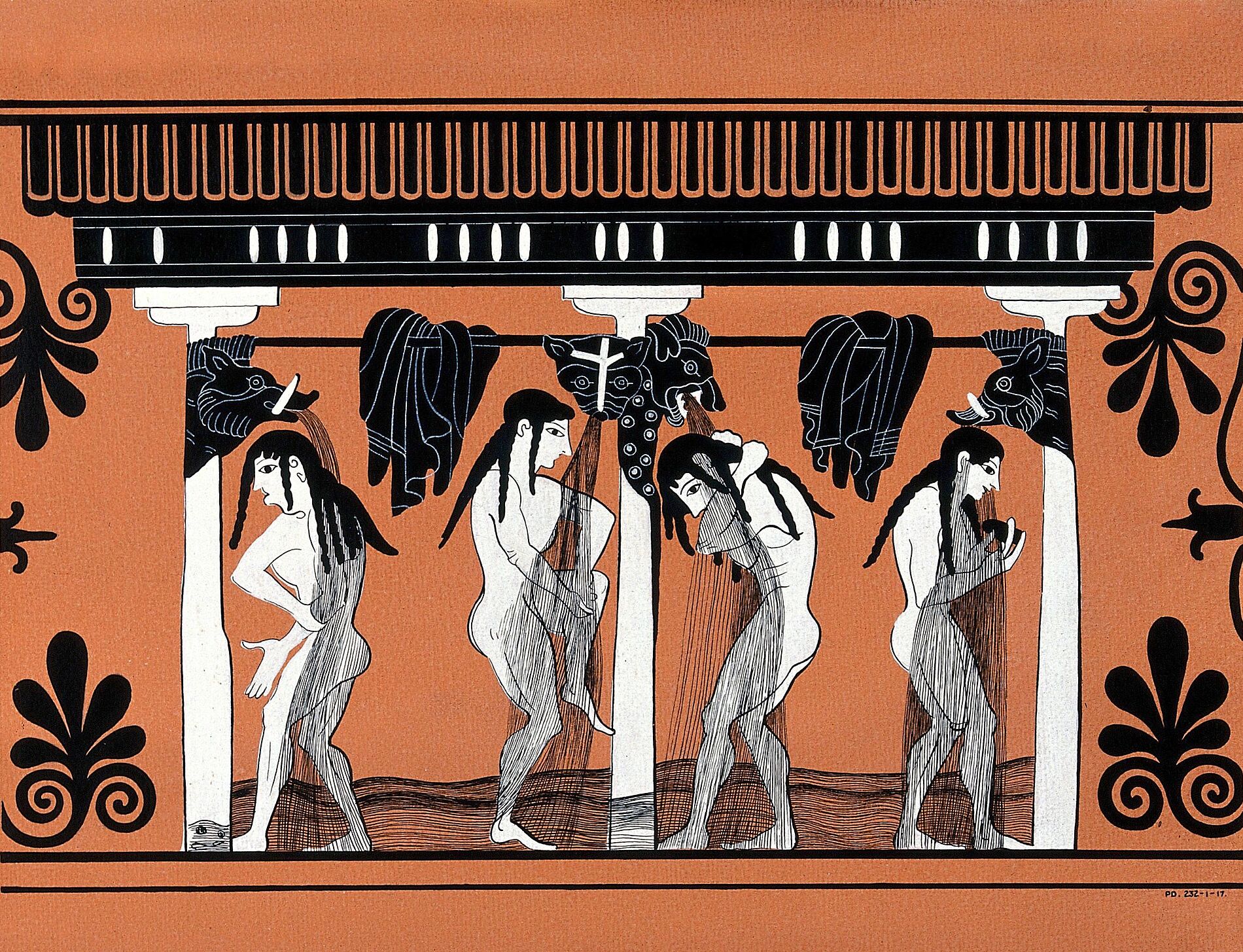Purity and Impurity in the Ancient Cultures of the Mediterranean World
In ancient studies, purity and impurity were primarily researched in the context of religious and cultic ideas and practices. The interdisciplinary and inter-epochal DFG network “Reinheit und Unreinheit in den antiken Kulturen der Mittelmeerwelt“ (Purity and Impurity in the Ancient Cultures of the Mediterranean World) broadens the perspective and also examines the material, natural and settlement-related, socio-anthropological, political and moral dimensions.

Women bathing in a public gymnasium. Gouache painting by S.W. Kelly, 1937. Wellcome Collection. Public Domain. Source: Wellcome Collection. https://wellcomecollection.org/works/c83uh599.
Bringing together a range of disciplines (ancient history, classical philology, classical archaeology, theology), researchers will explore the environments and discourses in which ideas and attributions of purity and impurity manifested themselves, and examine whether this category of thought and order always took the same form and fulfilled the same function in the cultures of the ancient Mediterranean world.
From 11 to 14 September, the network, coordinated by Dr. Bernadette Descharmes of the Institute of History, will host a public conference at TU Braunschweig. The lectures at the Institute for Regional History in Braunschweig will focus on the topics of “Body and Senses”, “Politics and Society”, “Cult and Religion” and “City and Environment”. These include approaches to ancient literature in the context of the sensory turn, purity and social order in Rome, and burial regulations, city boundaries and the question of the impurity of the corpse in ancient Rome.
